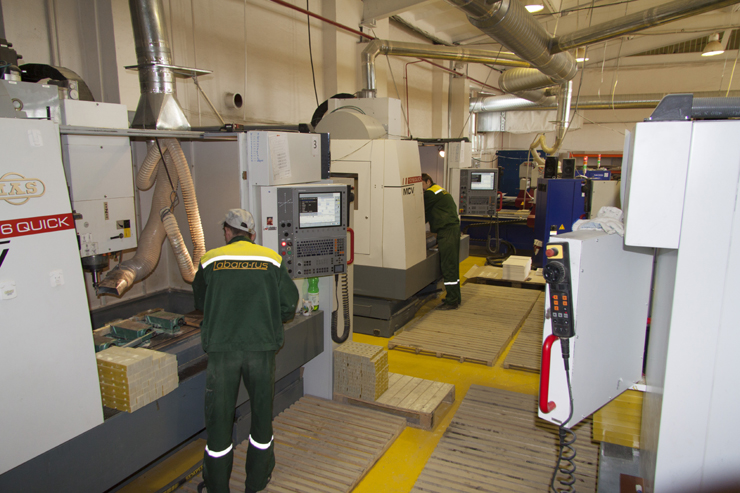Journalists Expose European Companies for Supplying Equipment to Russia’s Defense Industry
25 January, 2025 GRS Ural production facility. Photo by Investigace Investigative journalists have exposed nine companies from the Czech Republic, Poland, Sweden and Switzerland that supplied sanctioned industrial equipment to Russia.
This was reported by DW, citing a joint investigation by The Insider and the Czech publication Investigace. According to the investigation, European companies continue to do business in Russia through subsidiaries and companies owned by their top managers. The turnover of local divisions began to grow after the outbreak of a full-scale war and by 2023 reached almost 6.4 billion rubles (£623 million).
In particular, we are talking about the GRS Ural machine tool plant in Yekaterinburg, which is majority owned by the Czech company TOS Varnsdorf. In 2023, the company increased its turnover by one and a half times. During production in Russia, the plant uses components imported from the Czech Republic as well as ready-made machines.
 GRS Ural workshop.
GRS Ural workshop.
Photo by GRS Ural
The plant cooperates with at least three Russian state defense companies. These are Almaz-Antey, which produces air defense systems, including the S-400 and Tor; Perm-based Mashinostroitel, part of the Tactical Missile Defense Corporation, which produces components for rocket and aircraft engines; and Reduktor PM, whose products are used in Mi-8/17, Mi-26, and Mi-28 helicopters. Takhteh, a joint venture with Czech Tachtech, is also active in Russia, building and installing heating and thermal furnaces for industry.
Among its clients is the Omsk Plant of Transport Engineering, which is engaged in the decommissioning and repair of T-80 tanks. Another Czech trade and industrial group, Alta, does business in Russia through its wholly owned subsidiary, A-R. The parent company specializes in the production of machine tools and equipment for the extraction and processing of minerals, which falls under the 8th and 11th EU sanctions packages.
Since the outbreak of the war, A-R has imported 185 batches of goods worth £8.671 million. The Czech company Kovosvit also continues to supply Russian military enterprises. It exported 56 batches of machine tools worth almost £3.2 million.
Some products were imported by the Czech company Labara, which specializes in electrical insulation materials, through its Russian subsidiary Labara-Rus. In total, since February 24, 2022, Labara-Rus has purchased 324 batches of industrial equipment worth almost £5.4 million. Its revenue has almost doubled during the war.
 Labara-Rus production facility.
Labara-Rus production facility.
Photo by Labara-Rus
Other countries
The Swiss company Meg Metal SA continues to operate in Russia. In 2022-2023, it imported 149 steel products worth £13.87 million through its subsidiary Eurosteel. The largest buyer was the Kurchatov Institute's Prometheus Research and Development Center for CM, which develops alloys for nuclear submarines and icebreakers.
In 2023, Eurosteel's revenue increased by 206%, from RUB 496.9 million to RUB 1.524 billion. In addition, the Swedish company GCE Group cooperates with Russia. It supplies gas equipment used in the production of military equipment through its subsidiary GCE Crass.
Between February 2022 and April 2024, the company imported 655 items totaling £5.82 million. These include pressure reducing valves and parts of machines and apparatus for welding, brazing or soldering, which are classified as dual-use products. The Polish company Seco/Warwick was also identified.
It supplies industrial furnaces for manufacturers in the aviation, machine-building, tool and other heat treatment industries. The group is represented in Russia by its subsidiary Seco/Warwick Rus. From February 2022 to April 2024, the company imported 149 products worth £1.41 million.
Most of these products are dual-use goods that are critical to Russia's military potential. Recently, the US Treasury Department announced sanctions against Russian schemes to circumvent restrictions on the sale of military goods. The US sanctions targeted a network of legal entities in Russia, China, and Kyrgyzstan.
They created a scheme to circumvent sanctions by facilitating cross-border payments for military goods.
In total, the new US sanctions affected about 250 individuals and legal entities.